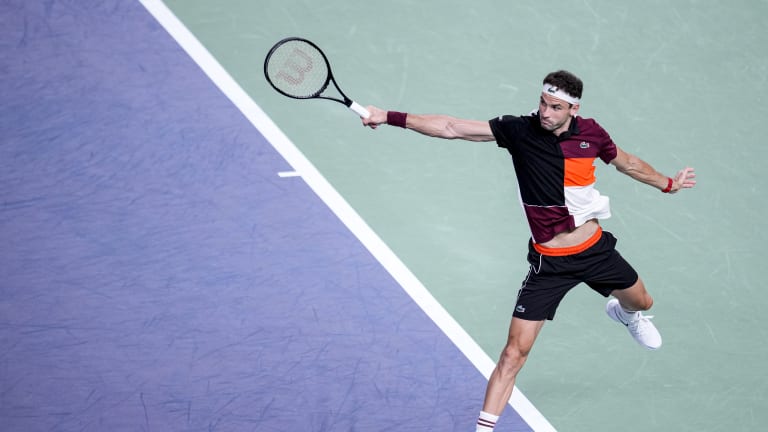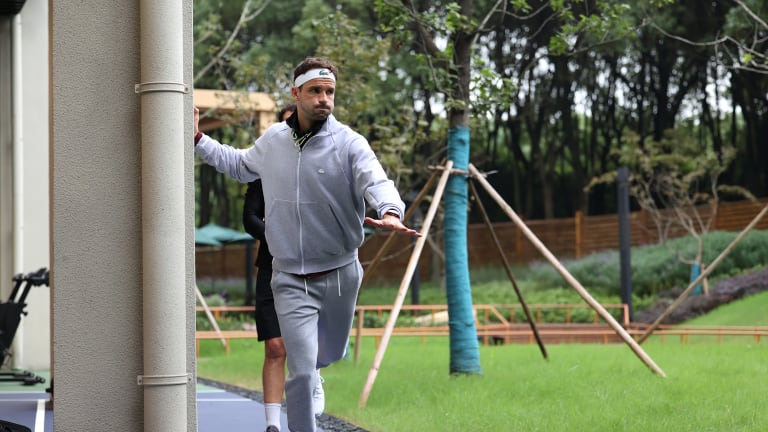ATP Shanghai, China
Grigor Dimitrov’s semifinal run in Shanghai is a good time to notice he’s having one of his best seasons
Oct 13, 2023ATP Shanghai, China
Frances Tiafoe fined $120,000 but not suspended for cursing at umpire in Shanghai
By Nov 14, 2024ATP Shanghai, China
Jannik Sinner showed off superior firepower in generational clash with Djokovic in Shanghai
By Oct 13, 2024ATP Shanghai, China
Shanghai Final Preview: Jannik Sinner—confirmed year-end No. 1—vs. Novak Djokovic, seeking his 100th title
By Oct 12, 2024ATP Shanghai, China
Jannik Sinner quells Tomas Machac to reach Shanghai Masters final
By Oct 12, 2024ATP Shanghai, China
Novak Djokovic, with rivals retired and GOAT status clinched: “I still enjoy competing, but part of me left with them”
By Oct 11, 2024ATP Shanghai, China
Taylor Fritz reaches fifth Masters 1000 semifinal of career in Shanghai with victory over Goffin
By Oct 11, 2024ATP Shanghai, China
Tomas Machac tops Carlos Alcaraz in Shanghai, setting up semifinal against Jannik Sinner
By Oct 10, 2024ATP Shanghai, China
Frances Tiafoe "extremely disappointed" with himself after cursing out chair umpire in Shanghai
By Oct 08, 2024ATP Shanghai, China
"That will be fun": Ben Shelton to face Jannik Sinner for second year running in Shanghai R16
By Oct 08, 2024ATP Shanghai, China
Grigor Dimitrov’s semifinal run in Shanghai is a good time to notice he’s having one of his best seasons
At 32, the one-time wunderkind is still working to fulfill his potential, on and off the court.
Published Oct 13, 2023
Advertising
Advertising

What made Dimitrov happiest about his quarterfinal win? When he was informed that he committed just three unforced errors, and didn’t face a break point. “That’s cool, I didn’t know,” he said, smiling.
© Getty Images
Advertising

“I’ve been here for a month now, exactly a month,” Dimitrov said of his time in Asia. “You have quite a bit of time on your own…so your mind is wandering, your mind is going into places.”
© Getty Images